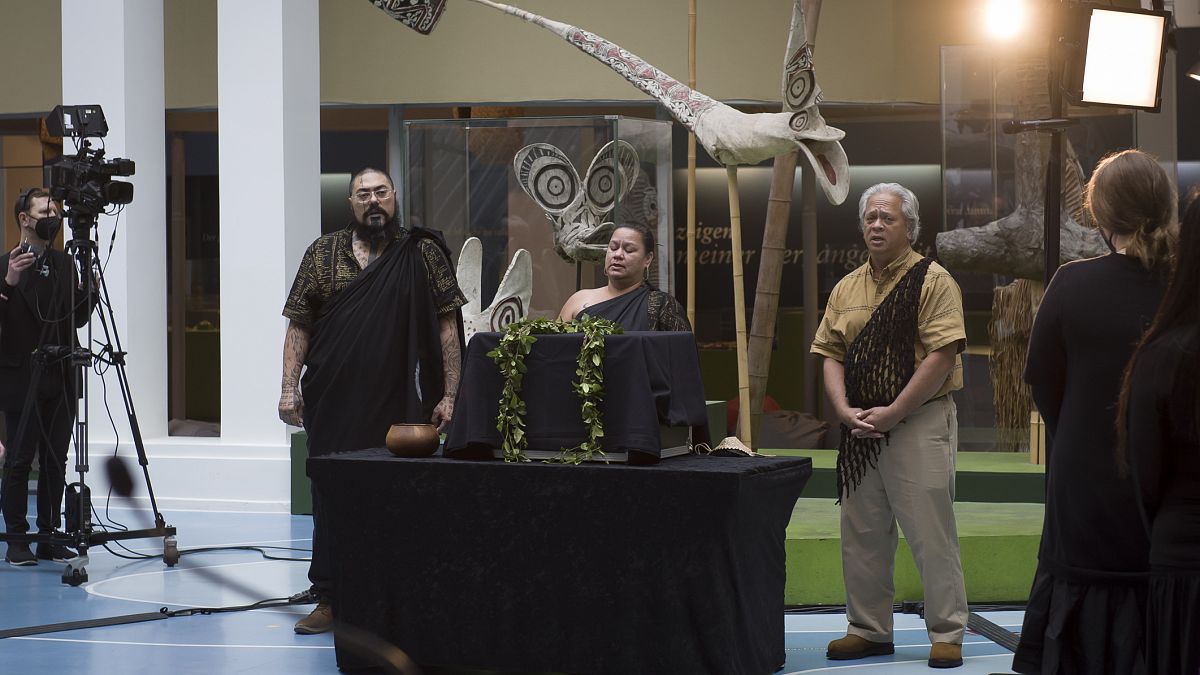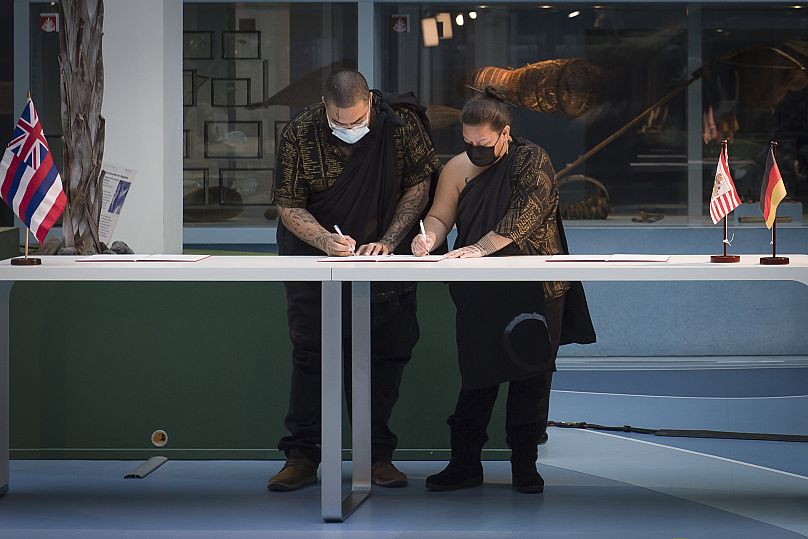The bones were originally collected by a German naturalist around 1880 but will now be transported to Hawaii for burial.
Human remains from five institutions in Germany and Austria have been handed over to Hawaiian officials.
The 19th-century bones of 58 people -- known as “iwi kupuna" -- will now be repatriated to the US state after official ceremonies.
The skeletons had originally been "stolen" and collected by German naturalist Hermann Otto Finsch around 1880 during a voyage to the South Pacific.
The remains were part of collections that were later taken over in 2011 by the Prussian Cultural Heritage Organisation -- the body overseeing Berlin’s museums.
It later emerged that around 40% of the skulls had originated from former overseas territories and discussions about their repatriation have been ongoing since 2017.
“Human remains from colonial contexts have no place in our museums and universities,” Germany’s culture minister, Claudia Roth, said a statement. “Their return must be a priority.”
"We must do our part to ensure that these wounds can be closed - through restitution, through a consistent reappraisal and confrontation with our colonial past and through greater international cultural exchange."
On Friday, the remains of 32 individuals were formally signed over to a representative of the Office of Hawaiian Affairs, a semi-autonomous state agency directed by Native Hawaiians.
Most of the bones are probably several hundred years old and were collected from a beach at Waimanalo on Oahu island. Two more skulls came from an unidentified place in Hawaii, according to the Berlin-based foundation.
The organisation says it will continue to research the provenance of artifacts and return human remains from “colonial contexts” if desired.
"In the 19th century, everybody collected human remains for archaeological research and all these institutions are now ready to repatriate them," said Hermann Parzinger, the president of the Prussian Cultural Heritage Organisation.
"These are ceremonies, there are prayers, there are speeches, this shows how important this is," he told Euronews.
"These are not human remains from thousands of years ago, they have a genealogical and direct relation to these communities."
In addition this year, the German body plans to return to Hawaii funerary items that were removed from burial caves around 1885.
Human remains will also be repatriated to Hawaiian representatives this week from the Natural History Museum in Vienna.
"We acknowledge the anguish experienced by our ancestors and take responsibility for their well-being -- and thereby our own -- by transporting them home for reburial," delegation leader Edward Halealoha Ayau said in a statement.
"In doing this important work, we also acknowledge and celebrate our respective humanity -- Germans and Hawaiians together -- as we write a new chapter in our historic relationship as human beings."



